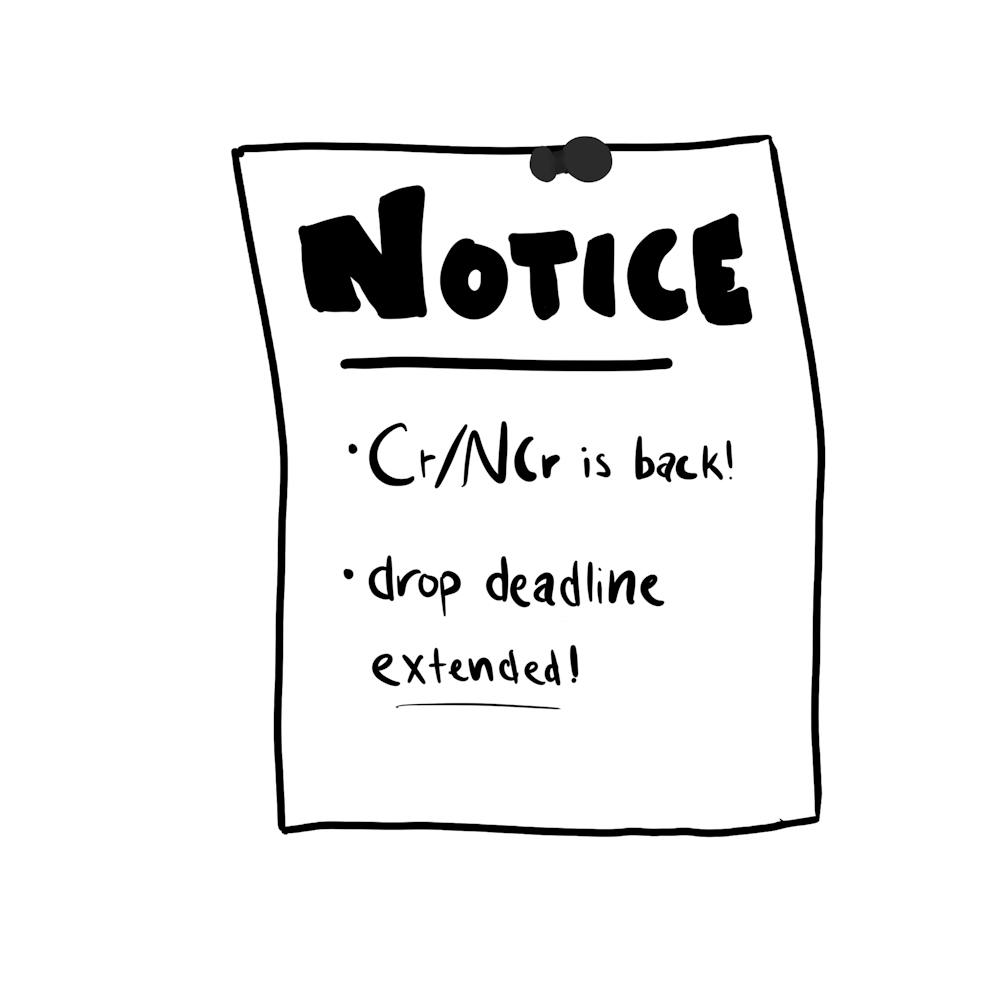Content warning: This article contains mentions of suicide.
The Registrar’s Office informed the student body that the faculty voted to reinstate the Credit/No-Credit grading option for the fall 2021 semester in an email sent Nov. 15. Faculty also voted to extend the drop deadline until Dec. 10, the last day of classes.
The college traditionally allows students to invoke a Pass/D/Fail option for two courses during their time at Middlebury, but in response to the Covid-19 pandemic, instituted a Credit/No-Credit option in April 2020. The opt-in system of Credit/No-Credit was extended in Oct. 2020 for the 2020-21 academic year.
Classes taken under the normal Pass/D/Fail system cannot be used to satisfy major, minor or distribution requirements; classes taken on a Credit/No Credit basis, on the other hand, can satisfy these requirements.
The reinstatement is in response to increased stress among students, specifically due to the ongoing pandemic and the recent student suicide on campus.
“We had been hearing from student life deans as well as our own students, that students are under extreme stress and anxiety,” said Geology Professor Will Amidon, who serves on the Educational Affairs Committee (EAC). The Student Government Association also approached the EAC with the idea.
The policy was proposed by the EAC and went on to pass the faculty vote by a slim margin. There was a debate about extending the deadline for students to invoke the Pass/D/Fail grading option, which passed on Oct. 8, instead of reinstating Credit/No-Credit.
“Many faculty feel that grade inflation is a problem at Middlebury and the CR/NCR policy is exacerbating that problem,” Amidon said.
Because of the reinstatement of the Credit/No-Credit policy, Pass/D/Fail will no longer be an option this semester. Students already taking a Pass/D/Fail class were notified that their course had been switched to a Credit/No-Credit grading system.
Overall, Amidon thinks that there is a larger issue to be addressed surrounding student mental health in academics.
“There are many, many students who are genuinely in distress and in need of help, and it's the compassionate thing to do to give people these safety valves,” Amidon said.
He hopes that enacting the policy so late in the semester helps those who really need it.
“I think it's a way to help students who are really in trouble, and the students at the top of their game, it doesn't directly affect them,” Amidon said.
While extending the policy into the spring semester was discussed, faculty in favor of the policy wanted to act quickly in order to have a meaningful effect on student mental health, and proposing the policy for the spring semester would potentially make it a longer discussion. Faculty also want to wait to see what the spring semester looks like regarding the state of the pandemic before making the decision on whether or not to extend the option.

Lily Jones ’23 is an online editor and senior writer.
She previously served as a Senior News Writer and SGA Correspondent.
Jones is double majoring in Philosophy and Political Science. She also is an intern for the Rohatyn Center for Global Affairs and on the ultimate frisbee team.



